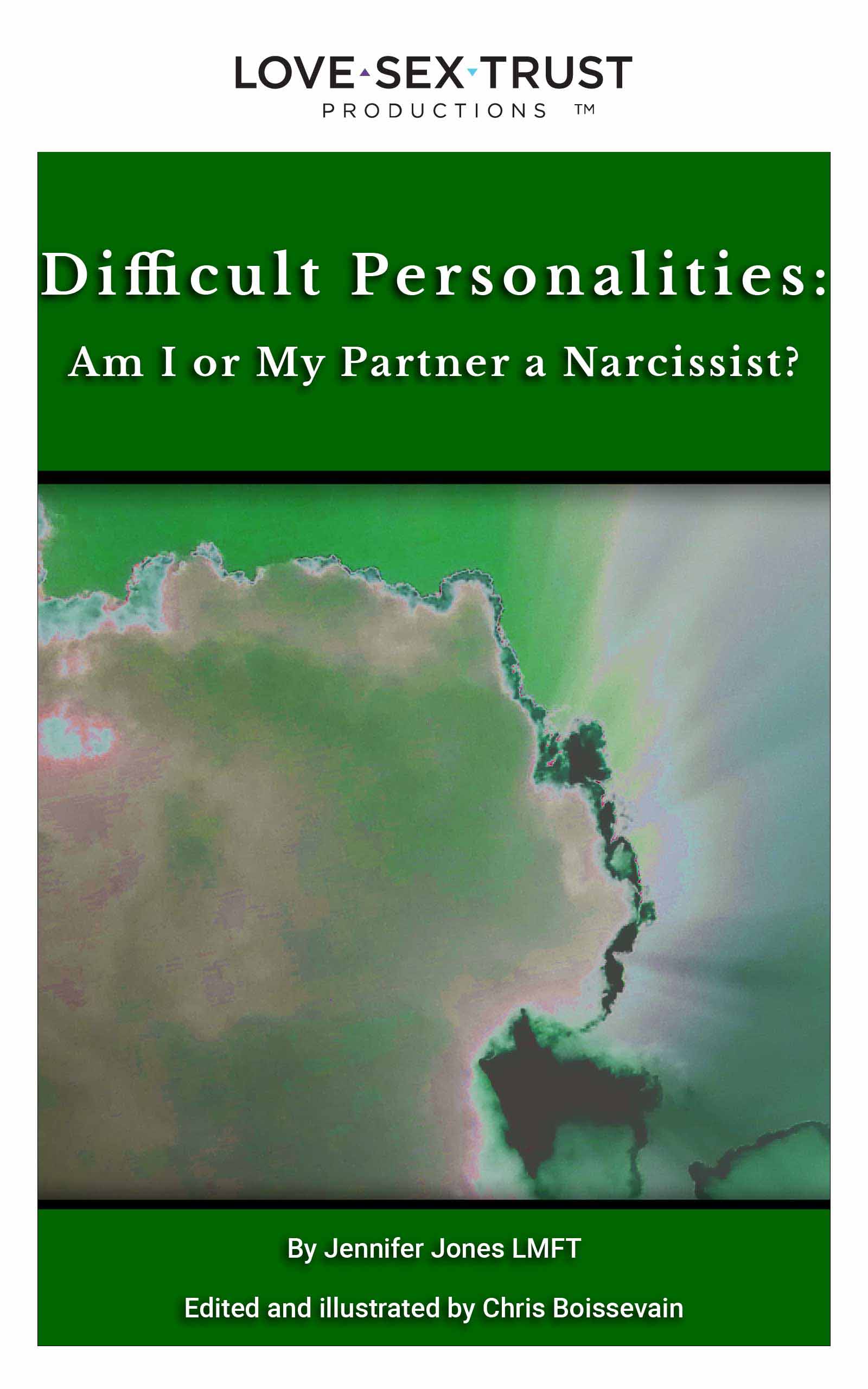Difficult Personalities: Am I or My Partner A Narcissist?
$9.85
Do you find others exasperating?
Do you often consider yourself inferior and feel irritated or judgemental of others?
Do you often feel resistant to others and misunderstood? Or, feel others accuse you of this?
Emotional immaturity is a less dramatic term for difficult personalities or disorders. Due to traits, an early environment facilitated by immature caregivers that were confusing, hard to rely on and trust, children form adaptations to their personalities. Difficult personalities result from abandonment, typically intergenerational abandonment issues, as covered in ebooks, Resolving Abandonment and Rejection, Interpreting Trauma Responses: Dissociation and Reactivity and Listening Open Heartedly.
As adults, adaptations play out in patterns of bonding and conflict within close relationships. To increase confusion, children from these types of backgrounds evolve into adults who are attracted to each other. Each partner interpreting, reacting and internalizing information through an emotionally defensive lens makes relationships confusing fast.
Difficult Personalities: Am I or My Partner a Narcissist? is a workbook written from how I approach this topic in my practice. Sidestepping past the dramatic conversation of pathologizing oneself or partner, you can first non-judgmentally evaluate your own and your partners manipulation tactics through a communication analysis.
Psychoeducation about child development, trauma and reactivity is then shared in response to the questions, “Why would someone communicate in such convoluted ways?” and “They don’t realize they are doing it?” “Don’t they realize I’m not a bad person?” “Aren’t they just lazy or forgetful?” among others.
Corresponding with books, Mate Selection: Rate Your Match, Affairs, Infidelity, Betrayal: Confront and Decide, Trusting Myself, tools are given to help you evaluate the motives and severity of yours or your partners communication tactics.
Use as a stand-alone resource, with the JOURNAL and/or with a professional, you can decrease denial, lovingly telling yourself deeper, harder truths.
Inviting self inquiry by holding a mirror to your communication defense tactics and psychology, you can bypass your own drama and negative attention seeking and focus on resolving your early unprocessed childhood abandonment trauma. Becoming more competent, you deepen your own maturity, benefitting the future relationships for yourself and your children.
Contents
- Introduction: What is Personality?
- (How You Avoid) Looking In The Mirror
- (Not) Looking Within
- Why Are You In The Theater?
- (Not) Considering Changing? (Skills)
- Communicating with Difficult Personalities (Skills)
- Resources
Estimated read time, 46 minutes
Related products
-

-

-
 Rate Your Emotional I.Q. $9.85
Rate Your Emotional I.Q. $9.85
